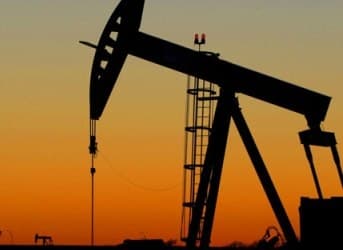Six shale plays in the United States account for nearly all of the growth in domestic oil production in the country. That's the assessment from the Energy Department's inaugural drilling report. By next year, gains from shale plays in the country should help push domestic oil production above the 8 million barrel per day mark. In turn, that means the United States is relying less and less on foreign suppliers to meet its energy needs. U.S. Energy Secretary Ernest Moniz, however, said lauding those gains may be misguided in the drive for energy security.
The six premier shale basins in the United States – Bakken, Eagle Ford, Haynesville, Marcellus, Niobrara and Permian – accounted for nearly 90 percent of the growth in U.S. oil production from 2011-12. All but the Marcellus shale are situated in the central United States. By November, projected oil production from those six areas reaches 3.7 million barrels of oil per day. The Eagle Ford and Permian basins are the bright spots. Together they account for more than half of the expected production.
International consulting firm PIRA Energy Group said Friday it expects the United States will pass Saudi Arabia in terms of projected production this year. The group said the surge in output from U.S. shale basins was responsible for much of that momentum. The Energy Information Administration, the U.S. Energy Department's analytical wing, said in its Oct. 8 short-term market report so-called tight oil formations are helping North America lead the way in terms of non-OPEC production. EIA said it expects total U.S. crude oil production to increase from the projected 7.5 million bpd in 2013 to 8.5 million bpd in 2014. Production from reserve areas in North Dakota and Texas are expected to account "for the bulk of forecast production growth over the next two years," the administration said.
Related article: How the 1973 Oil Embargo Still Affects US Energy Agenda Today
Energy Secretary Ernest Moniz told delegates at the Center for Strategic and International Studies, a Washington think tank, the increase in U.S. oil production and the unbridled enthusiasm over shale doesn’t mean the economy is shielded completely from the global marketplace. Speaking 40 years after the Arab oil embargo, Moniz, a former professor at MIT, said increased oil production does little for energy security when the global economy still runs on oil.
"It would be a misconception to think because of our increased domestic production that somehow we have become free of the global oil market, the global oil price and global oil price volatility," he said.
An October report from the International Energy Agency said domestic oil production in the United States could cut imports in half by the end of the decade. Behind the curtain of the shale boom, however, is the $300 billion in investments attracted to energy efficiency markets globally in 2011, the IEA said. IEA executive director Maria van der Hoeven said energy efficiency was a "hidden fuel" driving markets to a low-carbon future. Moniz, for his part, said that while oil production may be a relief for policymakers wary of geopolitical turmoil, the best way to reduce oil dependence is to not use it all.
By. Daniel J. Graeber of Oilprice.com


















